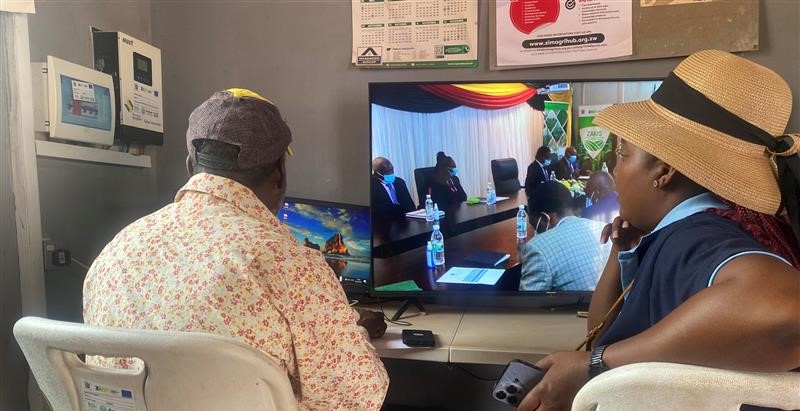In a major push to digitize rural communities, the government of Zimbabwe, in partnership with the Food and Agriculture Organization of the United Nations (FAO), is set to establish digital hubs in Bikita and Mhondoro-Ngezi districts under the Fostering Digital Villages Through Innovative Advisory and Profitable Market Services in Africa (FDiVi) project.
“The FDiVi project aims to transform agricultural and food systems in rural areas through digital technologies,” said Dowsen Sango, the FAO Digital Villages Initiative coordinator in Zimbabwe.
The digital hubs, which will support over 5000 rural people in the two districts, will serve as one-stop shops, providing rural communities access to a range of digital services and tools. “These hubs will improve efficiency and effectiveness throughout the agricultural and food system from input marketing, production, output marketing and consumption for households by being platforms for networking, learning, and co-creation,” explained Dowsen Sango.
The rural-urban digital divide has long been a challenge in Zimbabwe, with high data prices and low incomes making digital services inaccessible for many rural households. The digital hubs seek to bridge this gap by offering free or low-cost internet access, as well as training on digital skills and literacy for rural households and low-cost entry points for digital services providers.
“The establishment of these hubs aligns perfectly with the government’s National Development Strategy (NDS 1 (2021-2025) and 2 (2026-2030), the Zimbabwe Agriculture National Policy Framework (2018-2030) and the Zimbabwe Digital Economy Master Plan (ZDEMP),” said Thomas Nyikayaramba, Deputy Director – ICT in the Ministry of Lands, Agriculture, Fisheries, Water and Rural Development (MLAFWRD) and FDiVi Project Country focal person. “We are excited to work with FAO to leverage digital innovations and transform the lives of our smallholder farmers,” he added.
The hubs will offer a variety of services, including hosting digital fairs, the sale of digital gadgets, ICT-enabled training facilities and innovative agricultural extension and advisory services. This is expected to boost productivity, enhance market access, and drive inclusive rural transformation.
FAO and the government are developing a robust model to ensure the sustainability of the hubs. This includes identifying anchor paying customers, such as schools and local administrative services commodity associations, and exploring corporate social responsibility initiatives and community-based support through nested services and business hubs.
“We believe that these digital hubs can truly integrate local economies into the mainstream, closing the digital divide and unlocking new opportunities for rural communities, especially women,” said the FDiVi coordinator in Zimbabwe.
Through this collaborative effort, the government and FAO aim to empower smallholder farmers, extension officers, agro-dealers, and processors, particularly women and youth, to participate actively in the digital economy. This aligns with the FAO’s strategic plan to promote digital agriculture and support the country’s agricultural development priorities.
“This also aligns with the FAO Country Programming Framework (CPF) for Zimbabwe (2022-2026), which seeks to promote digital data tools, e-agriculture and services for farmers to transform rural livelihoods,” added Dowsen Sango.
As Zimbabwe takes this bold step towards a more digitally inclusive future, the impact of the Digital Villages Initiative is poised to transform the lives of rural communities, paving the way for a more prosperous and equitable agricultural landscape and food security.
Article from FAO

